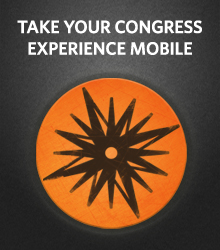
Afghanistan mission not about peacekeeping
Canadians on the whole support the idea of the country’s military being engaged in international peacekeeping activities.
The director of the Ethics, Society and Law Program at the University of Toronto’s Trinity College says the federal government has capitalized on that support and framed our intervention in Afghanistan in peacekeeping terms in an attempt to maintain public support for the mission.
In a paper presented at the 2011 Congress of the Canadian Federation for the Humanities and Social Sciences at the University of New Brunswick in Fredericton, John Duncan looks at how Canada’s military involvement abroad, and particularly in Afghanistan, has been “spun” to the public.
On the one side are those who say we are a nation with a peacekeeping tradition involved in a peace-building mission in Afghanistan, and on the other are those who argue Canada is not a peacekeeping nation at all. Canadian foreign policy, they say, is motivated primarily by the desire to improve our image at the international level and particularly in the eyes of the United States.
Duncan concludes that the critics are right and that Canada’s recent military interventions have more to do with furthering our own interests than anything else.
Duncan says Canadians not only support peacekeeping, but strongly resist the idea of our soldiers being involved in wars.
“Politicians are aware of this, and they are folding out intervention in Afghanistan into the peacekeeping concept,” he said.
“That allows Canada’s politicians to get support for the mission that is based on perceptions and not reality.”
In fact, Duncan says that public support for the mission began to decline when Gen. Rick Hillier, then chief of defence staff, called Afghan terrorists “detestable murderers and scumbags” and said in 2005 that Canadian forces would be ruthless about going after them.
“People on the left have been outmanoeuvred by the politicians who know enough Canadians believe in our peacekeeping heritage to fold it into our hearts and minds,” he said. “Why are we being asked to support a war on the basis of peacekeeping?”
Duncan says he doesn’t believe Canadians are getting the full story about Afghanistan.
“A democratic society suffers when it fails in this regard. Many Afghans are suffering because of this failure,” he says.
He says it’s easy to find evidence of the lack of information.
“The larger problem is finding the right way to frame the material so as to challenge the range of deeply held Canadian pre-suppositions about good intentions.”
Photo courtesy of isafmedia on Flickr













